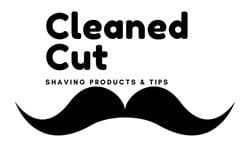Having pimples is a common issue that many people face, especially teenagers and those in their twenties. It can be tempting to pop a pimple, but doing so without the proper technique can lead to further skin damage and potential scarring.
Pimples are a common and annoying part of life for many of us. They can be embarrassing and cause your self-esteem to take a hit. Although popping a pimple may seem like the easiest way to get rid of it, it can worsen the problem and cause further skin damage if not done with care. Learning how to pop a pimple safely is key to preventing further skin issues, so let’s dive into the topic further.
What Causes Pimples and How Do You Prevent Them?
Pimples form when a pore in the skin becomes blocked. This can happen due to sweat, dirt, oils, and bacteria. As the pore becomes blocked, it can swell and become red, forming a pimple. To prevent pimples, it’s important to keep the skin clean by washing it regularly and exfoliating it.
Some people are more prone to acne, especially during their teenage years or early adulthood. Oily skin can also contribute to the formation of acne. Exfoliating the skin can help to prevent pimples by removing dead skin cells and unclogging pores. Additionally, it’s important to keep your hands away from your face and not pick at any existing pimples.
Using a natural product like Rice Paper Facial Tissues can help reduce oil on the skin and as a result lower the occurrence of breakouts. Alternatively, you might want to check out a product specifically made for men such as Anthony Glycolic Exfoliating & Resurfacing Wipes which conveniently cleanses and exfoliates your skin.
Should You Pop Pimples?
The answer to this question depends on the type of pimple and how severe it is. For whiteheads and blackheads, it may be ok to pop them if done correctly. However, for more severe pimples, such as cysts and nodules, it’s best to leave them alone and seek medical help from a dermatologist. Popping severe pimples can cause further skin damage, scarring, and even infection.
Is It Bad to Pop Pimples?
The short answer is yes; it can be bad to pop pimples. It can lead to you damaging your skin and even cause scarring. Additionally, it can spread the bacteria to other parts of the face, which can cause more pimples to form. If the pimple is popped incorrectly, it can also cause infection.
How to Pop a Pimple Safely
So, if you’ve decided that popping a pimple is the right course of action, here’s how to do it safely:
Preparing the Area
The first step is to prepare the area. Start by washing your hands with antibacterial soap and drying them well. Then, wash the area around the pimple with a gentle cleanser and warm water. This will help to remove any contaminants from the area.
Popping the Pimple
Once the area is clean, use your fingers to gently press down on either side of the pimple. If it’s a whitehead, the contents of the pimple should come out easily. If it’s a blackhead or stubborn pimple, you may need to use a pore extractor device or a Comedones Extractor Acne Removal Kit. Never use your nails or sharp objects to pop a pimple.
Cleaning the Area
Once the pimple has been popped, it’s important to clean the area. Use a cotton swab or cotton ball soaked in an antiseptic solution to clean the area. This will ensure that the area is clean and reduce the chances of infection.
Aftercare Tips
Once the area has been cleaned, it’s important to keep it moisturized. Apply a light moisturizer or aloe vera gel a few times a day to keep the area hydrated. Additionally, it’s important to keep the area clean and free of dirt and oil.
Takeaway
Pimples can be a source of embarrassment and can cause your self-esteem to take a bit of a hit. While popping a pimple may seem like the easiest solution, it can worsen the problem and cause further skin damage and scarring if you don’t do it with care. To prevent these issues, it’s important to learn how to pop a pimple safely. As long as you properly care for your skin and know your skin type and what’s needed, you can rid yourself of those pimples.



